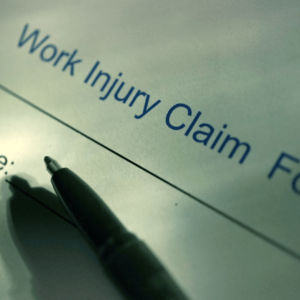When you make an uninsured-motorist (UM) or underinsured-motorist (UIM) claim in Pennsylvania, your own auto insurer steps into the shoes of the at-fault, uninsured driver. Before any lawsuit or arbitration is filed, the insurer will investigate—and that often includes asking you to give a statement under oath (sometimes called an “EUO”). Here’s what that means, why it matters, and how to protect your claim.
First, the legal backdrop (in plain English)
-
UM coverage is part of Pennsylvania’s Motor Vehicle Financial Responsibility Law (MVFRL). Insurers must offer UM and UIM coverage; policyholders can choose whether to buy it and at what limits. See 75 Pa.C.S. § 1731. PaGeneralAssembly.gov
-
Bad-faith rules still apply. If an insurer handles a claim in bad faith, courts can award interest, attorneys’ fees, and punitive damages under 42 Pa.C.S. § 8371. Pennsylvania General Assembly
-
Timing matters—but not the way many think. For UM claims, the statute of limitations is a contract issue: the clock generally starts when the insurer breaches the policy (for example, by denying the claim or refusing to arbitrate), not on the crash date. Erie Ins. Exch. v. Bristol (Pa. 2017). Pennsylvania Courts+1
What is a statement under oath (EUO)?
An EUO is a formal Q&A where you swear to tell the truth and answer the insurer’s questions about the crash, your injuries, medical history, lost wages, prior claims, and more. A court reporter transcribes the session. It’s similar to a deposition, but it happens before litigation and is based on contract, not court rules.
Pennsylvania courts recognize that insurers can ask for sworn examinations under policy “cooperation” provisions. Importantly, decades ago the Pennsylvania Supreme Court rejected the idea that insurers could use those provisions to import the full civil-discovery playbook before arbitration—you can be examined under oath, but not subjected to court-style discovery outside what the policy and arbitration rules allow. Harleysville Mut. Cas. Co. v. Adair (Pa. 1966). Justia Law
Do you have to go?
Usually, yes—if your policy requires it. Most policies make cooperation (including an EUO) a condition of coverage. If you flat-out refuse, the insurer may claim a breach of the cooperation clause. In Pennsylvania, when insurers rely on late notice or cooperation defects to avoid coverage, courts typically require the insurer to show it was actually prejudiced by the noncompliance (this “notice-prejudice” principle comes from Brakeman v. Potomac Ins. Co.). While Brakeman involved late notice, the prejudice concept is often discussed alongside cooperation disputes. Bottom line: don’t hand the insurer an avoidable “prejudice” argument—show up and cooperate reasonably. Leagle
How EUOs fit with UM arbitration or litigation
Many Pennsylvania auto policies send UM disputes to arbitration rather than court. In Adair, the Supreme Court held an insurer could not use pre-arbitration discovery devices beyond what the policy/arbitration rules provide; the insurer could examine the claimant under oath during the arbitration process. Practically, though, carriers often request an EUO pre-litigation to evaluate the claim. If requested under the policy, it’s typically proper to attend—with counsel. Justia Law
Practical do’s and don’ts for plaintiffs
-
Bring a lawyer. Your testimony is sworn and can be used later. A lawyer will prepare you, object where appropriate, and protect privileged information.
-
Prepare like you would for a deposition. Review the crash facts, medical timeline, prior injuries/claims, wage records, and benefits received. Have key documents organized.
-
Answer truthfully and precisely. Don’t guess. “I don’t recall” is better than guessing.
-
Scope should be reasonable. Questions must be material to coverage, liability, or damages. If questioning strays to harassment or irrelevant fishing, your lawyer can push back. Adair underscores that insurers don’t get limitless discovery because an EUO is requested. Justia Law
-
Know your timing leverage. If an insurer stonewalls after you’ve cooperated (including an EUO), that can affect when the statute of limitations runs (Bristol) and may support a bad-faith claim if the handling is unreasonable (42 Pa.C.S. § 8371). Pennsylvania Courts+1
-
Document everything. Keep the EUO notice, transcript, exhibits, and all claim correspondence. These materials often become critical if a dispute arises about delay, denial, or “prejudice.”
Common client questions
“Do I have to give both a recorded statement and an EUO?”
Policies often allow the insurer to take a recorded statement and—separately—an EUO. Whether both are required depends on your policy language. Have counsel review the contract before you agree to multiple sworn sessions.
“Can they ask about prior injuries or claims?”
Yes, if it’s reasonably related to your claimed injuries, damages, or credibility. That said, the inquiry must be material and not purely intrusive.
“What if I can’t attend on their date?”
EUOs must be reasonable in scheduling. Offer alternate dates promptly and in writing so the insurer can’t claim non-cooperation.
“What if I refuse the EUO?”
Refusal can jeopardize coverage. Even then, Pennsylvania law often requires the insurer to prove actual prejudice before forfeiting coverage—but you don’t want your case to hinge on that fight. Consult counsel and, if there’s a legitimate dispute (scope, privilege, language access, logistics), have your attorney negotiate reasonable guardrails instead of refusing outright. Leagle
Key authorities (for readers who want the sources)
-
Statutory framework (UM/UIM): 75 Pa.C.S. § 1731 (availability/scope). PaGeneralAssembly.gov
-
Bad-faith statute: 42 Pa.C.S. § 8371 (remedies for insurer bad faith). Pennsylvania General Assembly
-
EUO vs. pre-hearing discovery: Harleysville Mut. Cas. Co. v. Adair, 421 Pa. 141 (1966) (insurer may not graft full civil discovery onto pre-arbitration; EUO may occur within arbitration processes). Justia Law
-
When the limitations clock starts for UM: Erie Ins. Exch. v. Bristol, 174 A.3d 578 (Pa. 2017) (accrual upon alleged breach, e.g., denial/refusal to arbitrate). Pennsylvania Courts
-
Prejudice principle (notice/cooperation context): Brakeman v. Potomac Ins. Co., 472 Pa. 66, 371 A.2d 193 (1977). Leagle
Bottom line
If your Pennsylvania UM carrier asks for a statement under oath, treat it seriously:
-
get counsel, 2) cooperate reasonably, 3) keep the scope on what’s material, and 4) preserve a clean paper trail. Doing so protects your benefits, positions you well for arbitration or litigation if needed, and avoids avoidable fights over “cooperation” and “prejudice.”
This post is general information, not legal advice. If you’re pursuing a UM claim, talk to a Pennsylvania personal-injury lawyer about your specific policy and facts.










